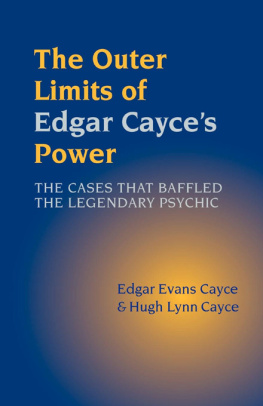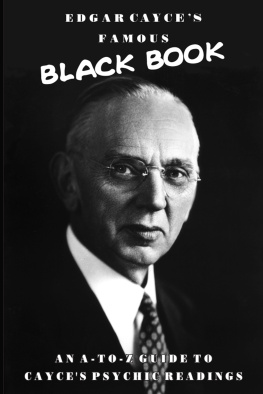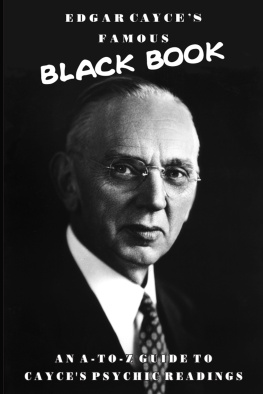Edgar Poe - Ligeia
Here you can read online Edgar Poe - Ligeia full text of the book (entire story) in english for free. Download pdf and epub, get meaning, cover and reviews about this ebook. genre: Prose / Science fiction. Description of the work, (preface) as well as reviews are available. Best literature library LitArk.com created for fans of good reading and offers a wide selection of genres:
Romance novel
Science fiction
Adventure
Detective
Science
History
Home and family
Prose
Art
Politics
Computer
Non-fiction
Religion
Business
Children
Humor
Choose a favorite category and find really read worthwhile books. Enjoy immersion in the world of imagination, feel the emotions of the characters or learn something new for yourself, make an fascinating discovery.

- Book:Ligeia
- Author:
- Genre:
- Rating:4 / 5
- Favourites:Add to favourites
- Your mark:
- 80
- 1
- 2
- 3
- 4
- 5
Ligeia: summary, description and annotation
We offer to read an annotation, description, summary or preface (depends on what the author of the book "Ligeia" wrote himself). If you haven't found the necessary information about the book — write in the comments, we will try to find it.
Ligeia — read online for free the complete book (whole text) full work
Below is the text of the book, divided by pages. System saving the place of the last page read, allows you to conveniently read the book "Ligeia" online for free, without having to search again every time where you left off. Put a bookmark, and you can go to the page where you finished reading at any time.
Font size:
Interval:
Bookmark:
Ligeia
by Edgar allan Poe
And the will therein lieth, which dieth not. Who knoweth the mysteries of the will, with its vigor? For God is but a great will pervading all things by nature of its intentness. Man doth not yield himself to the angels, nor unto death utterly, save only through the weakness of his feeble will.
Joseph Glanvill.I cannot, for my soul, remember how, when, or even precisely where, I first became acquainted with the lady Ligeia. Long years have since elapsed, and my memory is feeble through much suffering. Or, perhaps, I cannot now bring these points to mind, because, in truth, the character of my beloved, her rare learning, her singular yet placid cast of beauty, and the thrilling and enthralling eloquence of her low musical language, made their way into my heart by paces so steadily and stealthily progressive that they have been unnoticed and unknown. Yet I believe that I met her first and most frequently in some large, old, decaying city near the Rhine. Of her familyI have surely heard her speak. That it is of a remotely ancient date cannot be doubted. Ligeia! Ligeia! in studies of a nature more than all else adapted to deaden impressions of the outward world, it is by that sweet word aloneby Ligeiathat I bring before mine eyes in fancy the image of her who is no more. And now, while I write, a recollection flashes upon me that I have never known the paternal name of her who was my friend and my betrothed, and who became the partner of my studies, and finally the wife of my bosom. Was it a playful charge on the part of my Ligeia? or was it a test of my strength of affection, that I should institute no inquiries upon this point? or was it rather a caprice of my owna wildly romantic offering on the shrine of the most passionate devotion? I but indistinctly recall the fact itselfwhat wonder that I have utterly forgotten the circumstances which originated or attended it? And, indeed, if ever that spirit which is entitled Romance if ever she, the wan and the misty-winged Ashtophet of idolatrous Egypt , presided, as they tell, over marriages ill-omened, then most surely she presided over mine.
There is one dear topic, however, on which my memory falls me not. It is the person of Ligeia. In stature she was tall, somewhat slender, and, in her latter days, even emaciated. I would in vain attempt to portray the majesty, the quiet ease, of her demeanor, or the incomprehensible lightness and elasticity of her footfall. She came and departed as a shadow. I was never made aware of her entrance into my closed study save by the dear music of her low sweet voice, as she placed her marble hand upon my shoulder. In beauty of face no maiden ever equalled her. It was the radiance of an opium-dreaman airy and spirit-lifting vision more wildly divine than the phantasies which hovered vision about the slumbering souls of the daughters of Delos. Yet her features were not of that regular mould which we have been falsely taught to worship in the classical labors of the heathen. "There is no exquisite beauty," says Bacon, Lord Verulam, speaking truly of all the forms and genera of beauty, without some strangeness in the proportion." Yet, although I saw that the features of Ligeia were not of a classic regularityalthough I perceived that her loveliness was indeed "exquisite," and felt that there was much of "strangeness" pervading it, yet I have tried in vain to detect the irregularity and to trace home my own perception of "the strange." I examined the contour of the lofty and pale foreheadit was faultlesshow cold indeed that word when applied to a majesty so divine!the skin rivalling the purest ivory, the commanding extent and repose, the gentle prominence of the regions above the temples; and then the raven-black, the glossy, the luxuriant and naturally-curling tresses, setting forth the full force of the Homeric epithet, "hyacinthine!" I looked at the delicate outlines of the noseand nowhere but in the graceful medallions of the Hebrews had I beheld a similar perfection. There were the same luxurious smoothness of surface, the same scarcely perceptible tendency to the aquiline, the same harmoniously curved nostrils speaking the free spirit. I regarded the sweet mouth. Here was indeed the triumph of all things heavenlythe magnificent turn of the short upper lipthe soft, voluptuous slumber of the underthe dimples which sported, and the color which spokethe teeth glancing back, with a brilliancy almost startling, every ray of the holy light which fell upon them in her serene and placid, yet most exultingly radiant of all smiles. I scrutinized the formation of the chinand here, too, I found the gentleness of breadth, the softness and the majesty, the fullness and the spirituality, of the Greekthe contour which the god Apollo revealed but in a dream, to Cleomenes, the son of the Athenian. And then I peered into the large eves of Ligeia.
For eyes we have no models in the remotely antique. It might have been, too, that in these eves of my beloved lay the secret to which Lord Verulam alludes. They were, I must believe, far larger than the ordinary eyes of our own race. They were even fuller than the fullest of the gazelle eyes of the tribe of the valley of Nourjahad. Yet it was only at intervalsin moments of intense excitementthat this peculiarity became more than slightly noticeable in Ligeia. And at such moments was her beautyin my heated fancy thus it appeared perhapsthe beauty of beings either above or apart from the earththe beauty of the fabulous Houri of the Turk. The hue of the orbs was the most brilliant of black, and, far over them, hung jetty lashes of great length. The brows, slightly irregular in outline, had the same tint. The "strangeness," however, which I found in the eyes, was of a nature distinct from the formation, or the color, or the brilliancy of the features, and must, after all, be referred to the expression . Ah, word of no meaning! behind whose vast latitude of mere sound we intrench our ignorance of so much of the spiritual. The expression of the eyes of Ligeia! How for long hours have I pondered upon it! How have I, through the whole of a midsummer night, struggled to fathom it! What was itthat something more profound than the well of Democrituswhich lay far within the pupils of my beloved? What was it? I was possessed with a passion to discover. Those eyes! those large, those shining, those divine orbs! they became to me twin stars of Leda, and I to them devoutest of astrologers.
There is no point, among the many incomprehensible anomalies of the science of mind, more thrillingly exciting than the factnever, I believe, noticed in the schoolsthat, in our endeavors to recall to memory something long forgotten, we often find ourselves upon the very verge of remembrance, without being able, in the end, to remember. And thus how frequently, in my intense scrutiny of Ligeia's eyes, have I felt approaching the full knowledge of their expressionfelt it approachingyet not quite be mineand so at length entirely depart! And (strange, oh strangest mystery of all!) I found, in the commonest objects of the universe, a circle of analogies to that expression. I mean to say that, subsequently to the period when Ligeia's beauty passed into my spirit, there dwelling as in a shrine, I derived, from many existences in the material world, a sentiment such as I felt always aroused within me by her large and luminous orbs. Yet not the more could I define that sentiment, or analyze, or even steadily view it. I recognized it, let me repeat, sometimes in the survey of a rapidly-growing vinein the contemplation of a moth, a butterfly, a chrysalis, a stream of running water. I have felt it in the ocean; in the falling of a meteor. I have felt it in the glances of unusually aged people. And there are one or two stars in heaven(one especially, a star of the sixth magnitude, double and changeable, to be found near the large star in Lyra) in a telescopic scrutiny of which I have been made aware of the feeling. I have been filled with it by certain sounds from stringed instruments, and not unfrequently by passages from books. Among innumerable other instances, I well remember something in a volume of Joseph Glanvill, which (perhaps merely from its quaintnesswho shall say?) never failed to inspire me with the sentiment;"And the will therein lieth, which dieth not. Who knoweth the mysteries of the will, with its vigor? For God is but a great will pervading all things by nature of its intentness. Man doth not yield him to the angels, nor unto death utterly, save only through the weakness of his feeble will."
Font size:
Interval:
Bookmark:
Similar books «Ligeia»
Look at similar books to Ligeia. We have selected literature similar in name and meaning in the hope of providing readers with more options to find new, interesting, not yet read works.
Discussion, reviews of the book Ligeia and just readers' own opinions. Leave your comments, write what you think about the work, its meaning or the main characters. Specify what exactly you liked and what you didn't like, and why you think so.









